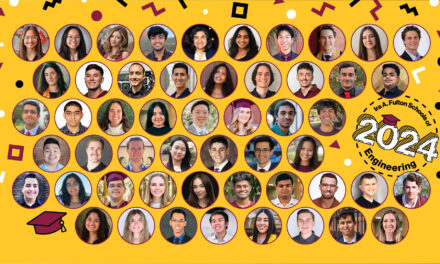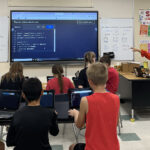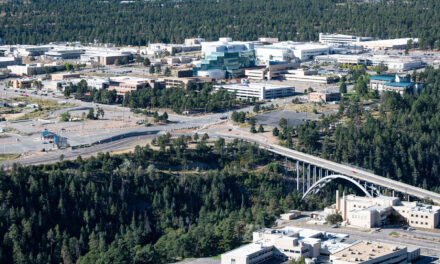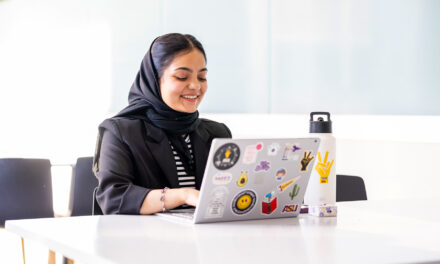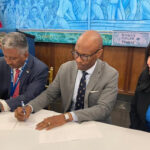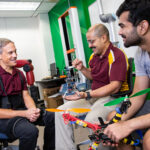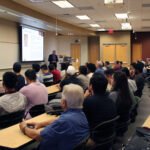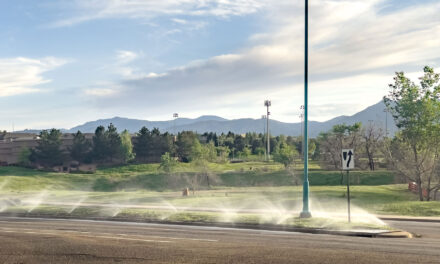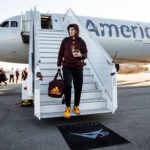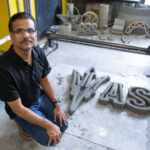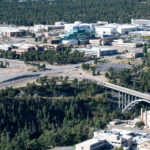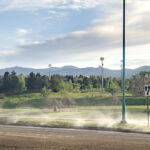
Character first, robotics second
ASU engineering student mentors share their love for robotics and teamwork with a winning group of local high schoolers
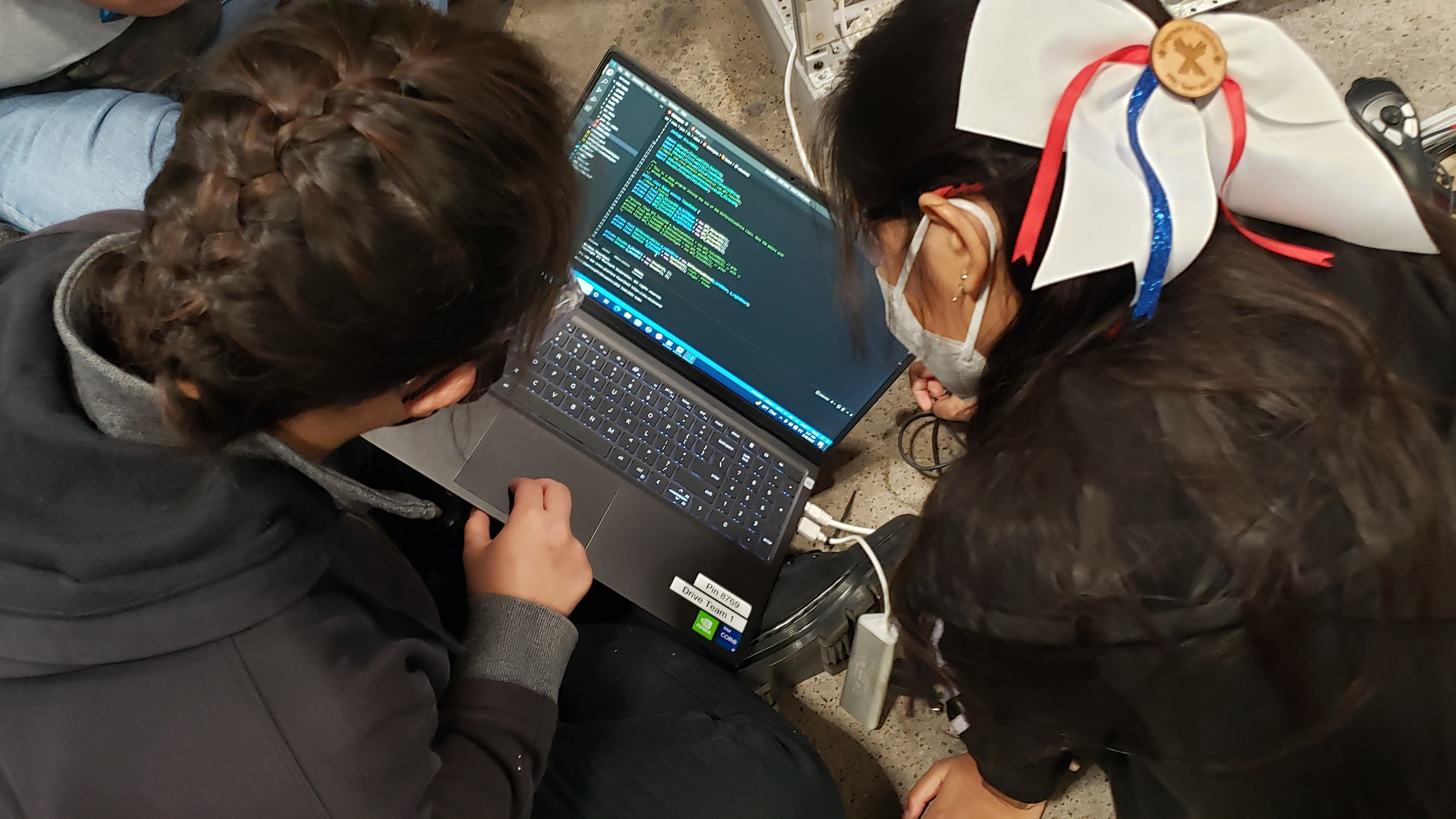
STEM education isn’t typically offered at the grade school level, but a group of local STEM activists, including faculty members and students from the Ira A. Fulton Schools of Engineering at Arizona State University and industry mentors from General Motors and Intel, are working to change that.
Together, they created a unique program for high schoolers from underrepresented communities to competitively build robots in their spare time. The program is called Degrees of Freedom and it’s supported by the Si Se Puede Foundation, a local nonprofit organization that provides STEM education in underserved communities. Degrees of Freedom invites local high schoolers who have an affinity for STEM subjects and want to expand their skills and collaborate with other like-minded students.
This year, the team is made up of 18 students from six local high schools. More than half of the team represents gender minorities in STEM and three-quarters represent Black, Indigenous and people of color.

Engineering lecturer, Desert WAVE faculty advisor and Degrees of Freedom co-head mentor Daniel Frank was recognized as volunteer of the year at the Arizona Valley Regional FIRST® Robotics Competition in March 2022. Photo courtesy of Daniel Frank
Degrees of Freedom isn’t like other after-school programs. It is largely supported by ASU engineering students who volunteer to mentor the team in their pursuit of winning robotics competitions. The team’s electric synergy between students and mentors helped them take home a top honor at a regional competition in March, and qualified them for the world championship.
Daniel Frank is the Degrees of Freedom co-head mentor and an engineering lecturer at The Polytechnic School, one of the seven Fulton Schools at ASU. He also advises Fulton Schools student organization Desert WAVE, of which one of the eight ASU student mentors is a member.
Desert WAVE is also supported in part by the Si Se Puede Foundation making it Degrees of Freedom’s big sister robotics team. In just a few short years, the student organization has created a reputation of success for themselves in the ASU community and beyond. The group has received international accolades for their complex underwater autonomous vehicle designs.
The mentors believe that sharing their knowledge with young learners opens a variety of doors for them in terms of college opportunities and career possibilities. Their mentorship mission is partly motivated by their own high school robotics experiences or lack thereof.
ASU software engineering and robotics and autonomous systems graduate student Romney Kellogg is a mechanical and social media mentor for Degrees of Freedom. She enjoys teaching students new skills because she says, “I didn’t have a mentor in my corner as a member of my high school robotics team, so part of the reason I joined was because I see how the mentors on this team are actively involved with the students and I wanted to make an impact.”
As a high school student, she recalls being sidelined because of her gender and her struggles to learn computer-aided design, or CAD.
“I worked with one particular student who was struggling to learn CAD, just like I had years ago, and realized I could connect with her and actually share some tips on how I overcame my struggles,” Kellogg says. “She ended up making a prototype and cut it out on the CNC machine. I felt proud and excited that my help actually fostered a new skill in this student and that was a personal victory for me.”
Andrea Schoonover, a third-year software engineering major and project manager for Desert WAVE, recalls the learning curve she faced when studying software programming and the feeling of gratification she also gets from helping young learners overcome their struggles.
“Before the season there is a lot of prep work to build up the students’ competencies so they can be more equipped during the build season,” Schoonover says. “During the build season we encourage the students to be the ones who are driving the solutions and using the mentors as resources to help implement those solutions.”
The Chairman’s Award

Degrees of Freedom competed with their robot, Red Bull, designed to launch large tennis balls into a goal and climb a series of elevated bars, each higher than the next. Photo courtesy of Degrees of Freedom
As a result of this camaraderie, Degrees of Freedom competed against 35 teams and earned the top honor, the Chairman’s Award, at the Arizona Valley Regional FIRST® Robotics Competition in March, qualifying them to compete at the 2022 FIRST® Robotics World Championship in Houston, Texas, in April.
The Chairman’s Award goes to the team that the judges believe is the best role model for other teams.
Frank recalls a time at the competition when another team was struggling with their robot’s programming.
“One of our student software experts went to take a look at their code and got their robot driving in time for the next match,” Frank says. “This is the way we compete. We want to make sure everyone is competing at their highest level.”
He reminds the students that “although you are competing against these teams today, years from now you may be at the same university studying together or working at the same company doing a project together.”
Frank says he believes that “one of the competition’s goals is to get the students to be inspired and become leaders in technology and engineering.”
Third-year mechanical engineering major Ashley Faucher remembers sitting in the stands as the ceremony went on and realizing they weren’t winning any of the smaller awards.
“I knew we were in a good position to win the Chairman’s Award because of our strong team values,” she says.
Faucher was also on a robotics team in high school and that gave her the motivation to pursue mechanical engineering at ASU. She said she chose ASU because she wanted to go to a school that had a high-quality machine shop and fabrication laboratory.
Robotics and autonomous system graduate student Kylel Scott says he and the rest of the team try to lead with “gracious professionalism” and “this honor was also based on the impact we have on our community. Our inclusive values make us successful.”

Andrea Schoonover, a third-year software engineering major and project manager for Desert WAVE, is a software mentor for Degrees of Freedom. She says she didn’t know she was interested in STEM subjects until entering ASU, so being able to help high school students discover STEM concepts early on is rewarding for her. Photographer: Erika Gronek/ASU
While Degrees of Freedom did not place in the World Championship, a few of the seniors decided that robotics was too enjoyable to give up. So, they made the decision to attend ASU and become Sun Devils, following in the footsteps of their mentors to live and breathe engineering at the Fulton Schools and join Desert WAVE.
“I cried when they told me they were going to join Desert WAVE,” Schoonover says. “They’ll have a safe space to come to and be creative once they join ASU and that’s priceless.”





